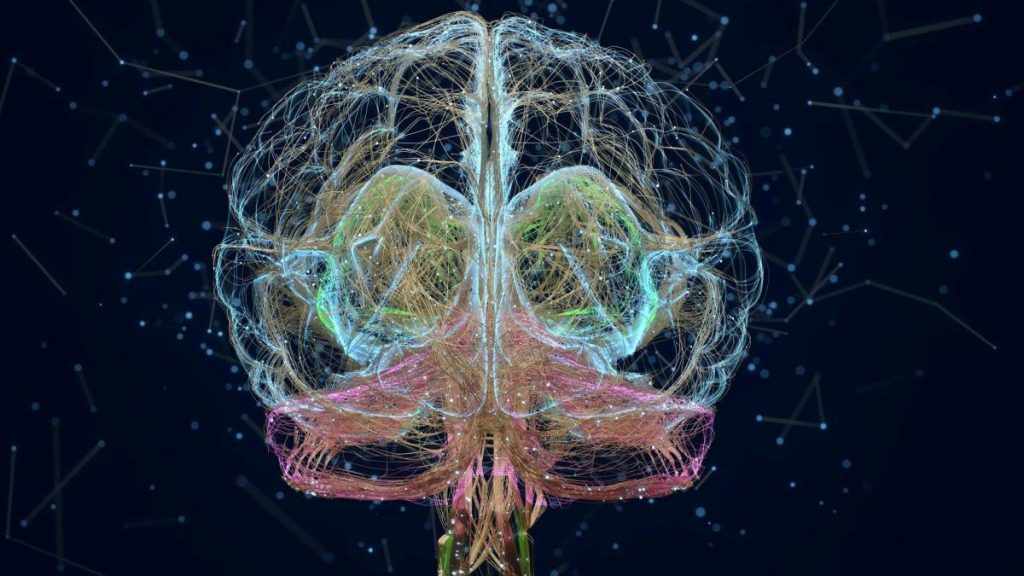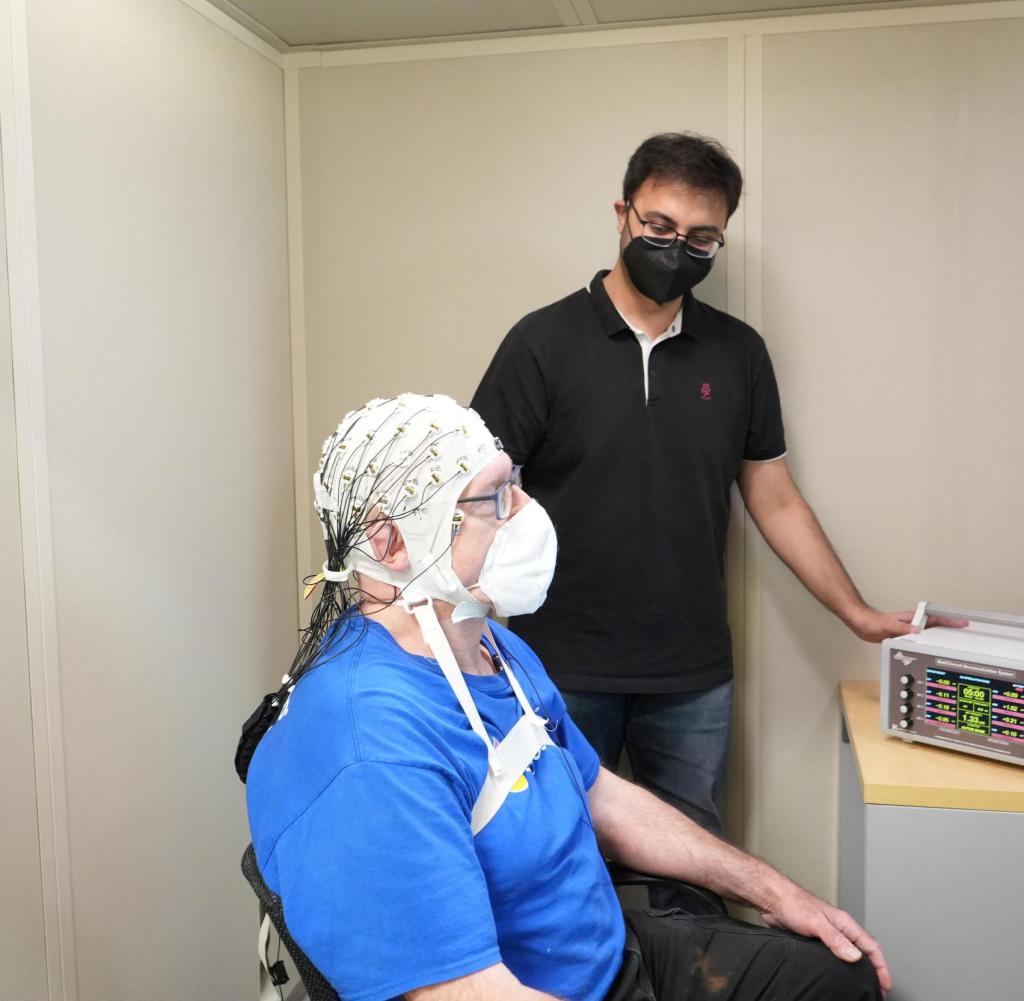Brain stimulation improves memory


Can be affected by electricity: the neural connections in the brain
Source: Getty Images
Electrodes can be used to influence brain currents from outside. This is supposed to improve mental performance, for example. A study has now proven that this method can enhance memory. Especially when you start to show weaknesses.
eElectrical brain stimulation can improve short- and long-term memory in older adults. This is the result of basic work that has been conducted on women and men of retirement age. Older adults who got 20 minutes of brain stimulation over four consecutive days were able to remember significantly more words from a list than people in the control group. The improvement was still clearly measurable after one month. The study conducted by a group led by Robert Reinhart and Sherry Grover of Boston University in Boston (Massachusetts, USA) is It was published in the journal Nature Neuroscience..
“One of the critical factors contributing to age-related costs is impairment of basic memory systems, which are essential for activities of daily living, such as making financial decisions or understanding language,” the researchers wrote. They studied whether transcranial alternating current stimulation (tACS) could be used to improve memory performance. The TACS system uses special alternating electric currents to stimulate changes.
Two days of treatment strengthens the memory of words
In the tests, 60 elderly people between the ages of 65 and 88 were placed on caps with electrodes that can deliver weak electric currents to the scalp. The researchers divided the study participants into three groups: In the first group, the lower parietal lobe (the inferior parietal lobe), which has an important function in short-term memory, was stimulated. In the second group, the currents were for the superior lateral prefrontal cortex (dorsal lateral prefrontal cortex), which is important for long-term memory. The third group received no stimulation and served as a control group.
In the experiment, participants heard 20 words, and then were asked to repeat them. There were five runs of this task, and the procedure took about 20 minutes in total. Scientists conducted the experiment on four consecutive days. As early as the second day, the group whose long-term memory was stimulated showed better performance at remembering the first words on the list; This performance increased in the following days. The group that stimulated short-term memory performed significantly better at remembering the last words on the list from day three.
However, these results only came when the brain region responsible for short-term memory was stimulated at a frequency of four Hz and the long-term memory area at a frequency of 60 Hz. In addition, the improvement effect was still evident when trying again after one month. The improvement was greater the worse the person performed on memory tests before the trials began. Reinhart, Grover, and colleagues suggest investigating whether such noninvasive stimulation might be beneficial in patients with specific memory defects who are at risk of developing dementia.
Johannes Levin of the German Center for Neurodegenerative Diseases (DZNE) in Munich sees an interesting approach to the study. However, it only relieves symptoms, not combating the cause of memory deficits. He criticizes a possible application in dementia patients: “We must not forget that the brains of dementia patients are pathologically different from those of healthy people.”
Memory training with cover: a topic in the study
Source: Robert Reinhart
Paul Lingor, head of the outpatient clinic for motor neuron diseases at the Technical University of Munich, sees no immediate benefit to the patient: “In my opinion, this is not a very practical use for the clinic,” he says of the brain stimulation technology. In addition, the question about the possibility of achieving similar successes with traditional memory training has not been answered. This can also have other positive effects.

“Total coffee aficionado. Travel buff. Music ninja. Bacon nerd. Beeraholic.”









More Stories
Coral Seeding: Artificial Insemination Makes Coral More Heat Tolerant
Fear, Anger, and Denial: How People Respond to Climate Change – Research
LKH Graz: Using radiation to combat heart arrhythmias